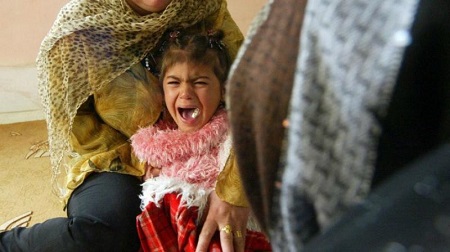UN Petition from Muslim women seeking ban on female genital mutilation (FGM)
/A group of Muslim women belonging to the Dawoodi Bohra community in India, who underwent Female Genital Mutilation (FGM), have launched a petition to the UN seeking support to abolish the practice. According to the World Health Organisation, between 100 million and 140 million females across the world are thought to be living with the consequences of FGM.
The online petition, aimed at rooting out this ancient practice, was launched by an advocacy group known as 'Speak Out on FGM' on Change.org on Thursday ahead of International Human Rights Day being observed on Saturday, December 10, 2016.
In December 2014, Joice George, a Member of Parliament, asked a question in Lok Sabha. He wanted to know if the incidence of FGM had been reported in the country and whether the government had taken any preventive steps to curb this practice. The answer to both these questions was that there was no official information on the incidence of FGM.
The reality is quite contrary to this official government response. A fairly large community of Bohras—numbering around 2 million—practise FGM. The reason that no incident has been reported is perhaps because FGM happens to a child of seven and is shrouded in complete secrecy.
Its knowledge is restricted to the mother, grandmother or aunt who take the child for the procedure. The child is deceived to begin with about the fact that she will be circumcised/cut. The pain and physical and emotional trauma are such that in most cases the girls never utters a word about this to anyone. That leaves us with the mother and grandmother who are the perpetrators of this act—and there is no reason they would ever report this to the government or any official for that matter.
For hundreds of years this practice continued under a shroud of secrecy and silence, and no one outside of the Bohra community even knew of its existence.
All this has now changed. Women from within the community have now begun to speak up. In 2011, a young lady, Tasneem, launched a petition on change.org addressed to the Bohra clergy–asking for an end to FGM in the community. This petition received over 5,000 signatures, but the Bohra clergy did not pay any heed.
The online petition was submitted to the wing of the United Nations dealing with the welfare of women and children, a senior associate with the group said. The group launched a similar petition in December last year, which has received over 80,000 responses so far and was submitted to Union Women and Child Development minister Maneka Gandhi.
"Our main objective to make everyone aware at least of this age-old practice being observed in our country for the last 1,400 years, which in not only shameful but is unconstitutional and utterly violates human rights," said Masooma Ranalvi, a 50-year-old working woman from Delhi.
"I have no hesitation in admitting that I was subjected to FGM at a very young age, but I have ensured that my daughter, who is now 22, does not undergo this brutality," said Ranalvi, adding even today over 80 percent of the Bohra girls are subjected to this hurtful tradition.
A senior associate of the group from Pune Shabnam Poonawala said, "Though this is practiced in the US and Canada too, but their respective governments have brought laws to curb this evil. But unfortunately, no one speaks about this here, forget bringing a law for it."
In December 2012, the UN General Assembly adopted a unanimous resolution on banning FGM. The World Health Organisation (WHO) classifies FGM as a violation of the human rights of girls and women.
The WHO defines FGM—sometimes called female circumcision—as all procedures that involve partial or total removal of the external female genitalia, or other injury to their genital organs for non-medical reasons.
Recounting her ordeal that she underwent at a tender age, a survivor from Mumbai said, "I was very young, around seven years of age. I was subjected to FGM in Mumbai in unhygienic conditions and in a clandestine manner. The shock, the physical and psychological trauma of that day is still fresh in my mind.It's good that thousands of survivors are joining this campaign not only from India, but also from the US, the UK, Canada, Australia, South Africa, other African countries, Middle East, France and
Survivors maintain the aim of FGM was to curb the natural sex drive in women. They claimed FGM has nothing to do with religion and is more of a cultural practice.
On October 24, 2016, Prime Minister Narendra Modi said that "Muslim women also have to be protected and be given equal rights as per the Constitution of India."






